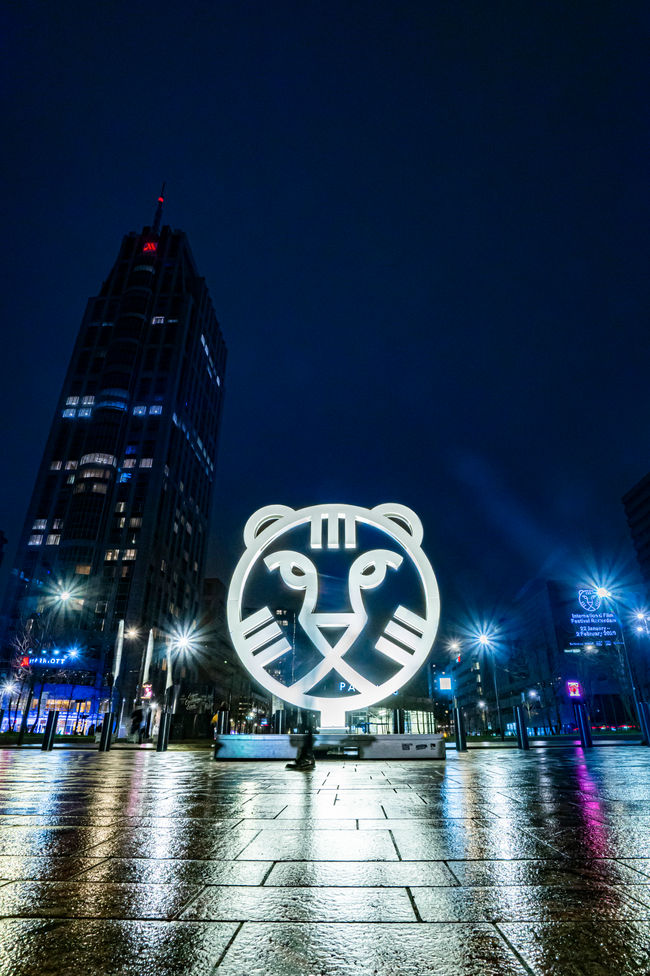Modern But Not Modish
15 January 2020
Olaf Möller and Gerwin Tamsma on The Tyger Burns
The two of us have been talking about this for a long time: a programme dedicated to older filmmakers, preferably those who at some point have been quite famous internationally. Who are still – or once again – active, but who often have come to be ignored by the institutions that once feted them.
Why did this seem such a necessary and attractive idea? We are at a moment in time when film culture, and especially festival culture, prizes debuts more than ever. The 20th-century cult of youth reigns supreme. So, in the first place, it feels like a Socratically sound idea to look to the other end of the spectrum.
Classic and Modern
With IFFR’s half centennial just around the corner, this 49th edition of the festival feels like the right moment to consider age and time. The world into which IFFR was born, as ‘Film International’ in 1972, has precious little to do with our world today. The Rotterdam festival was created in support of certain ideas and ideals of its era, and in opposition to others. Could it be that some of these had turned sour and dour over the intervening decades; have even become travesties of what they once were? And is it, vice versa, possible that stuff considered cheap or wrong back then now appears fresh, and part of the way forward?
To give just one example: Hubert Bals no doubt showed a certain disdain for the popular cinema of the day, and the people who produced this. But, in the half-century since, the idea of art(house) cinema has become an industry and machine in its own right. Perhaps it could be fruitful to wonder what this tradition of popular movies might have to offer? While putting together The Tyger Burns, many examples of this presented themselves, some of which we embraced gladly. These are part of something that has been lost, and which should be brought back into the mix. The self-effacing humility of Yamada Yōji’s Tora-san, Wish You Were Here, for example, is something we really miss.
In this regard, two of our genre treats – Pascal Thomas’ À cause des filles..? and José Luis Garci’s El crack cero – come from auteurs who cultivated a self-consciously classic aesthetic that goes against the grain of the times: modern but not modish, as the protagonist of André Forcier’s Les fleurs oubliées describes himself. Four words that could serve well as a motto for our endeavour, and that very well describe the particular genius of films like Ruy Guerra’s In Pieces and Ōbayashi Nobuhiko’s Labyrinth of Cinema; Andrey Khrzhanovsky’s The Nose or Conspiracy of Mavericks and Karel Vachek’s Communism and the Net or the End of Representative Democracy. All are creations too different, and too daring, to ever not be called modern.
About the Past
Having established the general idea to look for the gaze of old filmmakers, both inside and outside of Rotterdam’s traditional sense of cinema, filmmakers who have adopted filming as a way of life and carry on as if they were still young, and so attack ageism in a – dare we say it? – positive way, we gradually abandoned the idea of including some examples of old work in the programme. Yes, it would be nice to present some forgotten masterpieces that could function as a time machine, giving contemporary viewers a chance to understand the follies of the past a little better and thereby rescuing this past, as E.P. Thompson said, “from the enormous condescension of posterity”. But the tyger burns in so many old filmmakers, we wanted to reserve our precious space for new works; and clearly, ours is a programme about a contemporary gaze: after all, these auteurs are all artists of our age as much as theirs.
Memories are key to most of the works mentioned so far. Looking backwards became a thematic strand almost against our wishes and desires; it seems so expectable. Summer has gone and it is “already September”, to quote from Roy Andersson’s About Endlessness. But who can talk in more meaningful ways about the past than those who have one? Mette Knudsen places herself and her Second Wave feminist generation in the centre of The Long Road – to mediate between earlier and younger histories; Raquel Chalfi’s The Hidden Fountain feels driven by the need to create a past where for her there were mainly holes, darkish or blinding absences; Michael Pilz (With Love – Volume One 1987-1996) has spent almost his entire career in the act of making sure there is a trace we can experience as a past. And, while we’re at it: isn’t it curious that such seemingly different trajectories as those of Yamada Yōji and René Viénet (La dialectique peut-elle casser des briques?, 1973-2020) criss-cross in the desire to remake past works? What could be more fitting a subject for the second return of Andrei Smirnov to cinema than a tribute to the struggle for creative freedom in late 1950s Moscow (A Frenchman)? And what has changed over the decades for Janusz Majewski, who mainly made films set in the past, in recreating historical circumstances (Black Mercedes)?
Lifetime
Behind all this, again, hides our desire to catch a glimpse of what an old filmmaker’s gaze might be: what does it mean to have seen so much, to have created so much that can be seen and heard? Do you become impatient with decorum, with the fuzzy details you spend maybe too many days and years on? There’s a grace in frailty, derived from a disinterest in wasting time. Is this the essence of the economic storytelling in Werner Herzog’s latest films, such as Family Romance, LLC? Conversely, the seemingly effortless elegance of Nakajima Sadao’s Love’s Twisting Path suggests a profound desire to make one more sword-fighting samurai film, a final proud exemplar – an epitaph, almost, for an art form? And what can be found in the patience of the animators, the long-distance runners of cinema (Le voyage du prince; One Arm; El sueño de Malinche)?
It’s age more than anything else that allows Hara Kazuo to make and premiere Reiwa Uprising in just four months – only a lifetime of experience affords the artist the sangfroid and craft to pull this off. The same goes for the humility of means with which James Scott made Fragments. More than fifty years after his seminal portrait of David Hockney, and a lifetime in film and the arts, an iPhone is all he needs to show unabated creativity in progress.
And let’s not forget that this gaze of age also lies in the darkly and hilariously bold dissection of geriatric libido as only the old masters can do it, and only they would be allowed to (El diablo entre las piernas). Perhaps it is only when we come face to face with the human body’s limits that we can appreciate the effort life itself involves; let alone making creative sense of it.
Special thanks to Kristina Aschenbrennerova, Gustavo Beck, sergio g.m. germani, Robert Gray, Evgeny Gusyatinskiy, Marcella Jelić, Nakanishi Kayoko, Cristina Kolozsváry-Kiss, Robert de Rek, Boris Nelepo, Ivan Ramljak, Julian Ross and Barbara Wurm.









